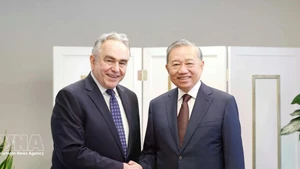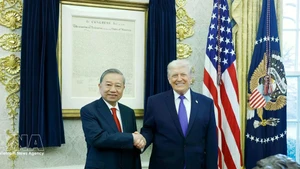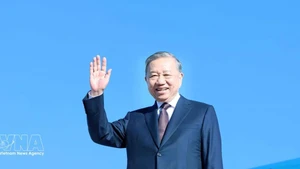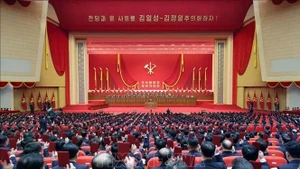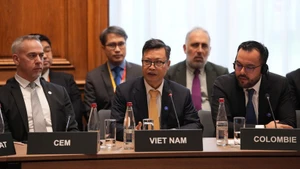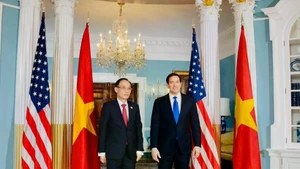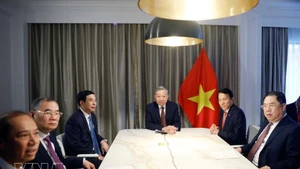Located in East Africa, Uganda possesses abundant resources, prioritising the development of agriculture, information and communication technology services. In addition, Uganda also has advantages in cattle breeding, fishing, and the dairy processing industry.
Since 2007, the Cabinet of Uganda has approved the National Vision Statement ‘A Transformed Ugandan Society from a Peasant to a Modern and Prosperous Country within 30 years’.
Uganda Vision 2040 was launched on April 18, 2013, identifying six priority areas to realise the National Vision Statement, including: infrastructure; science, technology, engineering and innovation; land use and management; urbanisation; human resource; and peace, security and defence.
In order to attain the Vision 2040 target of being a higher middle-income country in 2040, Uganda has adopted drastic reforms as well as implemented open-door trade-investment policies to attract foreign investment.
Uganda's economy started to prosper in 2018, with GDP growth reaching 6.1%, up 30% compared to the 2010-2016 period, and was recognised by the United Nations for its efforts to reduce the average poverty rate from 70% to about 20% of its population.
Despite the impact of the COVID-19 pandemic, Uganda is still among the few countries witnessing positive growth in 2020 with 3%. In 2021, Uganda's economic growth reached 3.4%, its GDP was worth 40.43 billion USD, and the per capita income averaged 894 USD, according to the World Bank.
The country’s major trading partners include China, the US, Kenya, the UAE, India, and Japan.
As a member of the United Nations, African Union (AU), East African Community (EAC), Common Market for Eastern and Southern Africa (COMESA), International Monetary Fund (IMF), and Commonwealth of Nations, Uganda has actively participated in peacekeeping forces and the settlement of a number of conflicts in Africa.
Uganda served as a non-permanent member of the United Nations Security Council in the 1981-1982, 1986, and 2009-2010 tenures and will assume the role of Chairman of the Non-Aligned Movement for the 2023-2026 period.
Vietnam and Uganda established their diplomatic ties on February 9, 1973. Uganda previously actively supported the Vietnamese people's resistance war for national salvation against the US.
Since then, the bilateral friendship and cooperation has developed fruitfully in many fields, such as politics, economy, trade, investment and agriculture. Mutual trust and understanding has been further enhanced through the exchange of delegations and cooperation mechanisms.
The two countries have coordinated and supported each other at multilateral forums, especially the United Nations.
The bilateral economic cooperation has developed well. The two-way trade reached 14.3 million USD last year, up 39.8% from the previous year. Vietnam mainly exports steel, garments-textiles, machines, equipment, spare parts, phones and components to Uganda, while importing animal feed, materials, coffee, wood and timber products from the country.
As of October 2022, Uganda ran three projects in Vietnam worth a total of 90,000 USD while Vietnam counted two mining and construction projects in Uganda with total investment capital of 35.5 million USD.
Agriculture has been seen as a bright spot in the bilateral relations. Uganda sent delegations to Vietnam in 2018 and 2019, during which the two sides inked memoranda of understanding on cooperation in agriculture and fishery.
The official visit to Vietnam by the Ugandan President takes place in the context of the two countries looking towards the 50th anniversary of their diplomatic ties. May President Yoweri Kaguta Museveni's visit to Vietnam be a great success, contributing to peace and stability in the region and in the world.
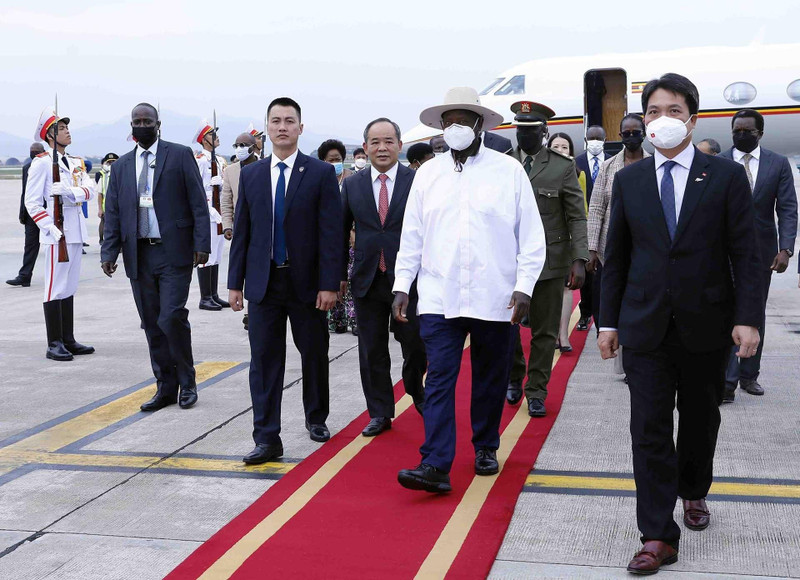
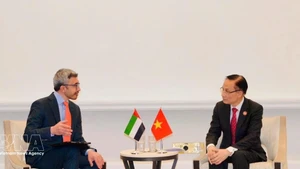
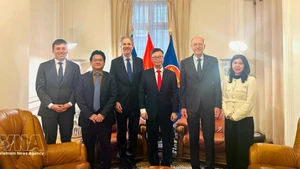
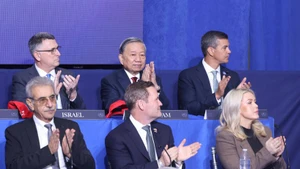
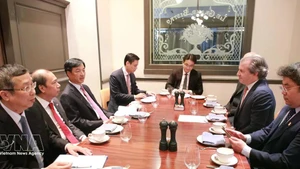
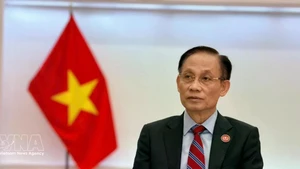
![[In pictures] Party General Secretary To Lam meets US President Donald Trump](https://en-cdn.nhandan.vn/images/dcd63867a0eed4c7753eb4bfb346593abc1ce710dfab8ad1b9aebd75ea6bf930b2ea13e4664779d689ba40aadd80f76d5d05d1208720fd7b0d811ace3a3297321c78cf738400e136e3f2d8790b24d43646e46edbe19517144a88f6ffb0d528f153574a7109328cc0949e4a4c16433c2ff751541639eefe4490518227264cbf8e/vna-potal-tong-bi-thu-to-lam-gap-tong-thong-hoa-ky-donald-trump-8599945.jpg.webp)
